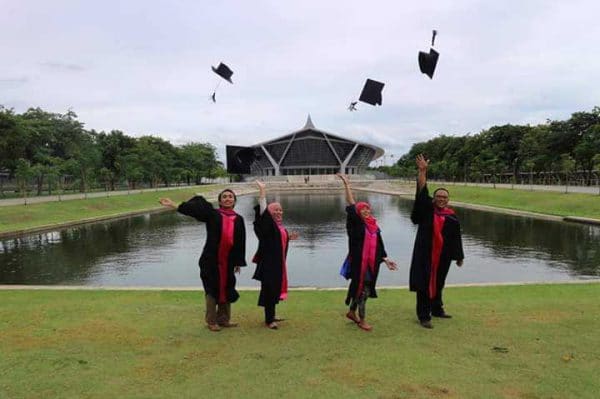 Human resource development among civil servants is important
Human resource development among civil servants is important
Population and family planning development programs rapidly evolve. Changes occur due to a variety of factors, such as the society that has become more critical, greater demand for transparency, the development of new phenomenon, and political changes – the devolvement of authority to subnational government certainly affects the way population and family planning programs are being run. Changes are also reflected in the law, such as Law No. 52 of 2009 on Population and Prosperous Family Development.
Changes demand people to continuously adapt. Reliable, competent people who are capable of following the dynamics in population and family planning programs across all levels – national, province, regency/city – are needed. Some basic competencies of a program manager, for example, include the skills to generate projections on population growth, CPR trend, TFR trend and provisioning of contraceptives as well as to support family planning programs using his/her knowledge that is relevant to the needs of the National Population and Family Planning Board (BKKBN).
Presently, there is a need to increase the number of competent people in BKKBN. Capacity building, for instance through training programs, are required to make sure that BKKBN has the right people to plan appropriate development targets and exercise proper measures of population control that considers the carrying capacity of the environment.
Therefore, human resource development among civil servants is vital. It is mandated in Law No. 5 of 2014 on State Civil Apparatus (ASN), which states that competency building is to be delivered through education and training programs. Article 70 of the law states that every ASN has the right and opportunity to further their skills. Nationally, human resource development is the first of five-priority agenda of President Joko Widodo, who envisions skilled human resource with knowledge and technology master to pursue Advanced Indonesia (Indonesia Maju) by providing quality education.
Similarly, BKKBN also considers human development as crucial and a priority. Long-term and short-term study are strategic programs in BKKBN; these programs are needed to improve the performance of Banggakencana (family, population, and family planning development) program. With more people trained, BKKBN will be able to expand its pool of skilled manpower in managing family planning programs, equipped with the basic knowledge in Banggakencana. They are expected to provide significant contribution to Banggakencana implementation.
Not only in national level, capacity building is also needed in province and regency/city levels, especially since trained and skilled people in population and family planning programs are or have entered retirement. In each regency/city, there should be at least a well-trained person in family planning, reproductive health, and in communications and information delivery, to ensure that family planning programs are running smoothly as planned.
For the purpose of capacity building, the Center of Training and International Cooperation (PULIN) has been the dedicated unit in improving the quantity and quality of BKKBN’s human resource. In accordance with its core function and responsibility as stated in BKKBN Head Regulation No. 72/PER/B5/2011, PULIN on behalf of BKKBN has been implementing long-term education program in master’s and doctorate programs and short-term courses (non-degree) since 1971, with funding support from the national revenue and expenditure budget (APBN) as well as other funding sources.